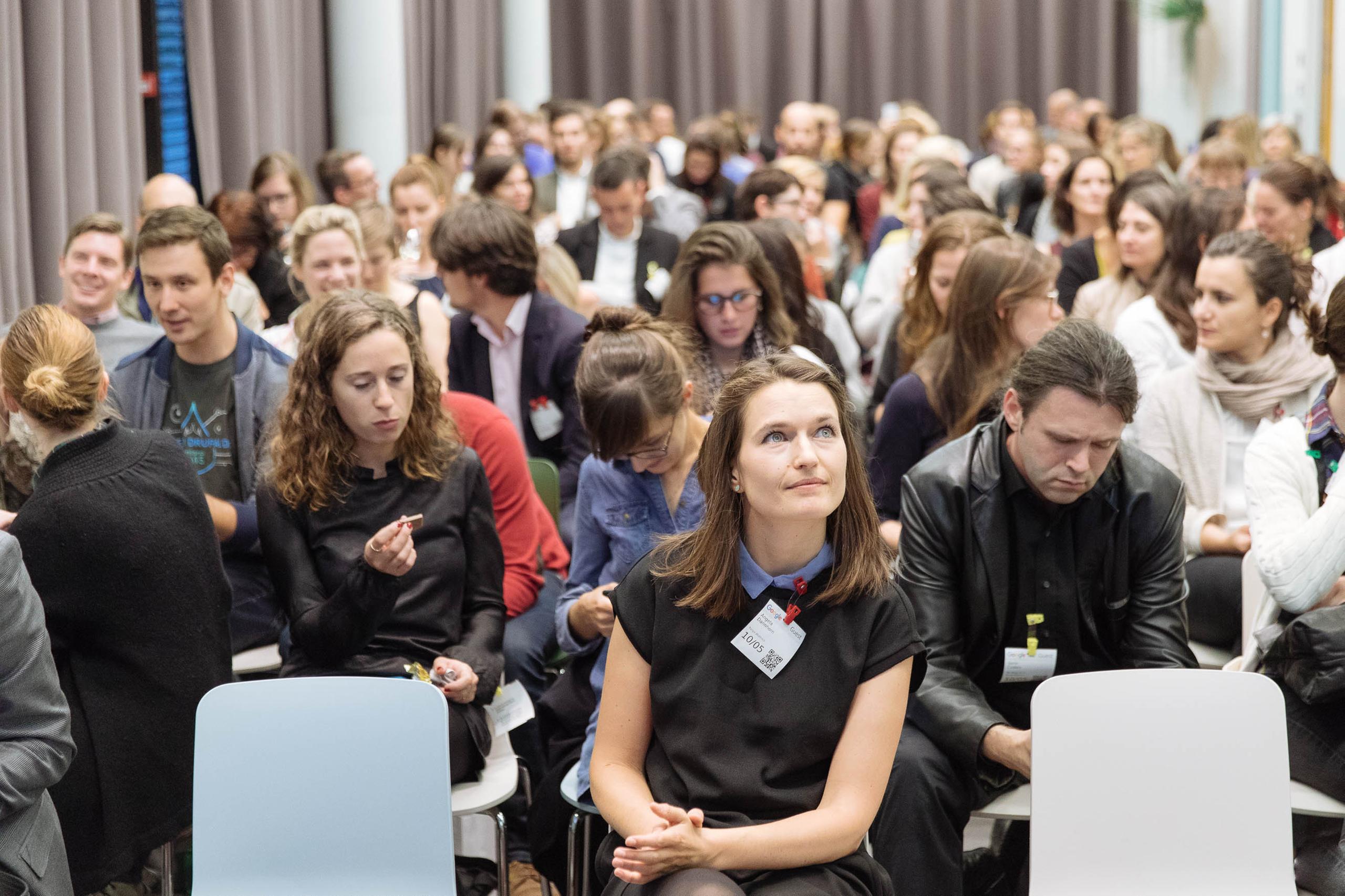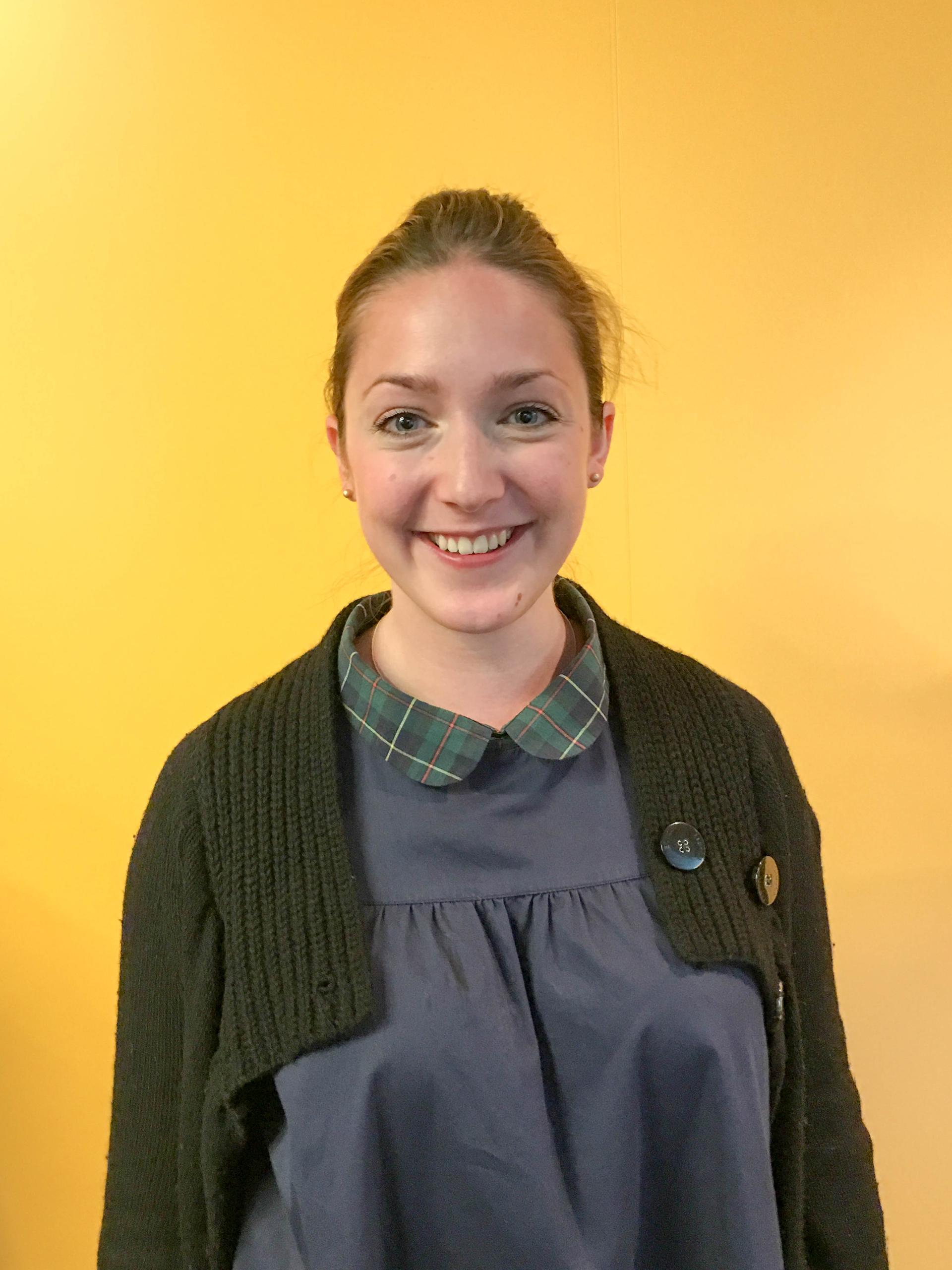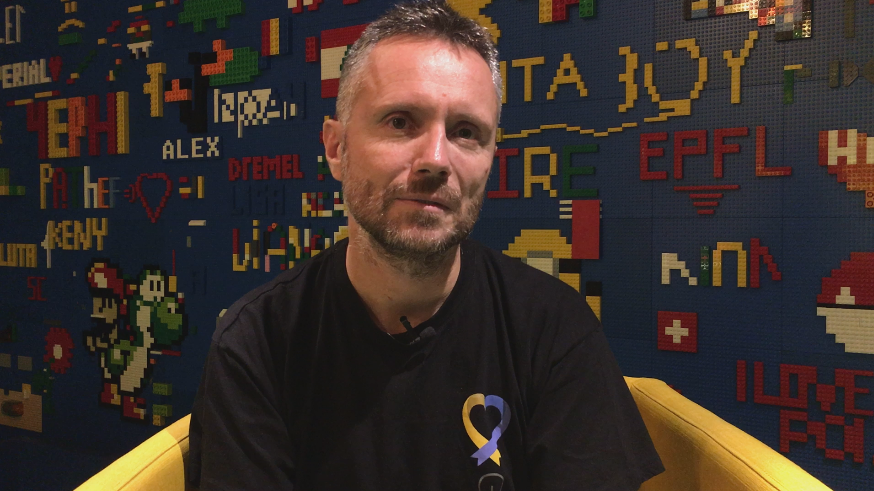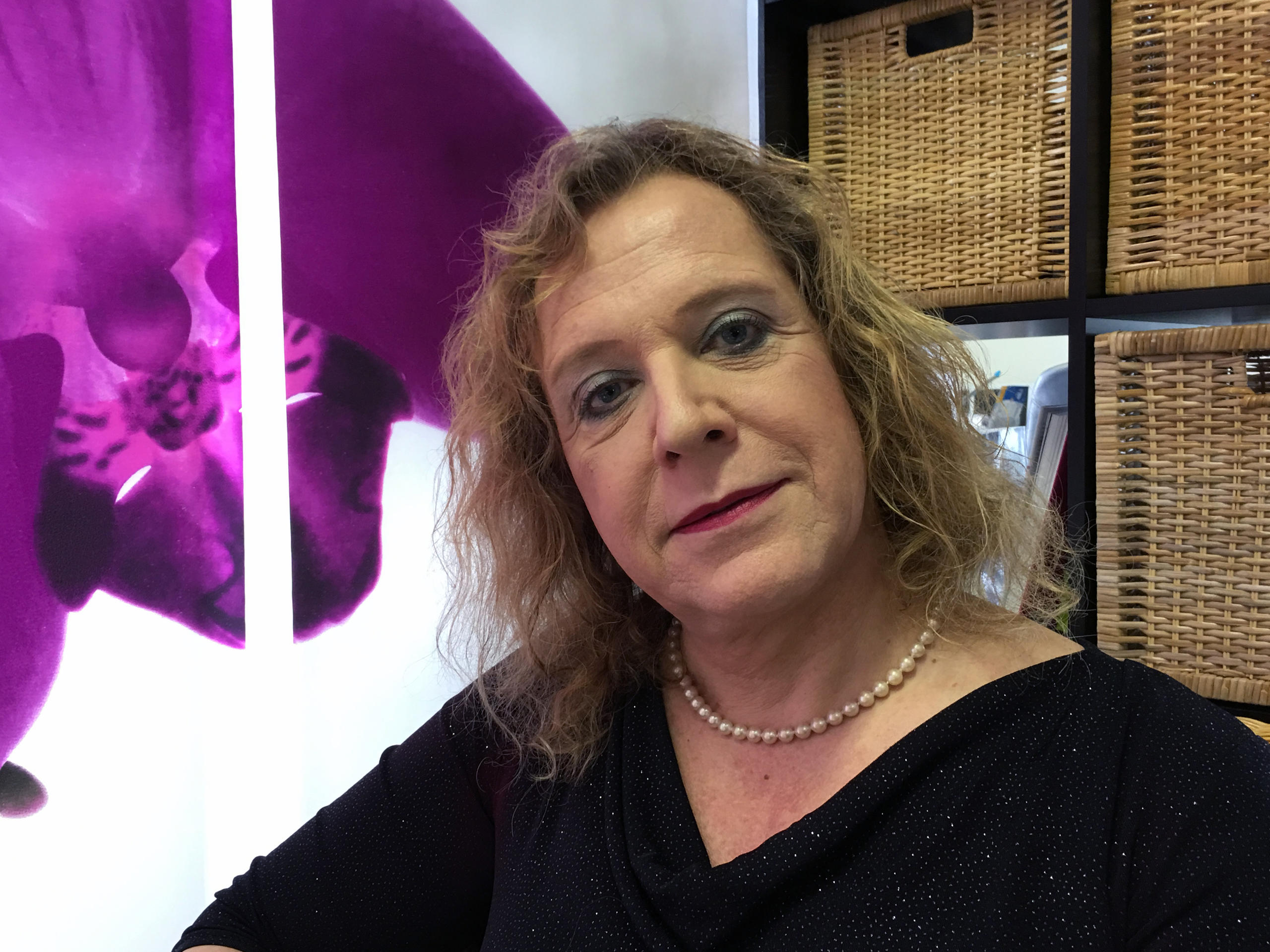The women shaping tech in Switzerland

A movement has started in Zurich to bring together women who work in the tech field that could break male dominance in the sector.
It’s a Wednesday evening in Zurich and around 100 women (and a handful of men) have packed into a room at Google’s Zurich offices. They’re part of the We Shape TechExternal link network. Organised by six women in their free time and of their own initiative, it includes women who work at large tech companies and start-ups, whether in web development, as Scrum Masters, UX designers, software engineers, and more.
“I love working in tech, and I want to see more women here – I want it to be the norm.” Petra Ehmann works in business development at Google in Zurich, licensing content to power different apps, such as maps.
She’s one of the women who runs the network. Ehmann has worked at various companies in different countries, and says her team at Google is “well mixed” when it comes to the male-female divide.
However, as Google Zurich is the biggest location for engineers outside of Mountain View, the company’s headquarters in California, there are a lot of male engineers at the Swiss site. “I got used to it, because I studied mechanical engineering, and I needed to learn to build friendships with men to get along in that environment,” said Ehmann. “That helped me then, and it helped me here.”
On this particular evening, there are three quick-fire ‘lightning’ talks. Isa Steiner, the female CTO of Siroop, a Swiss online ‘marketplace’, explains that for her a “shared mindset” is what drives diversity at work. Dressed in a grey hoody and jeans, she stands confidently before the crowd, and explains that the way she expresses herself and her approach to business are often quite different to what people expect from her. “I swear a lot,” she laughs.
"You can only benefit from #diversityExternal link when you are open to be proven wrong." Love it @tweetizzyExternal link @siroop_chExternal link #weshapetechExternal link pic.twitter.com/CZFNJ79ig6External link
— Melanie Kovacs (@MelaKovacs) October 5, 2016External link
Power in numbers
“The network is one of the most valuable things women can take away from these events. Women support women, and encourage them to step up,” said Ehmann.
For graphic designer Janine Fuchs, who runs her own company and is another one of the network’s organisers, it’s about “being strong together”.
“If every single person fights for diversity by themselves, there’s not enough impact. Women should learn to network and be strong together.” Fuchs believes they’re already feeling the impact of the network.
Jobs in tech are quite wide ranging, but these figures on the gender split in IT and communications, and IT and other information services, go some way to showing the divide, and how little it changed over the ten years from 2005 to 2015.
Brigitte Hulliger from Bern runs her own company for product innovation in software engineering. As a woman, she says “you need to have some courage to get into these jobs”.
“When I got my first job [in this field], I got some weird comments like, ‘finally we have a woman in our team so our office won’t be dirty anymore.” She says she wasn’t “hurt”, but “it’s kind of an issue if our culture has to discuss topics like that”. And that was two years ago. Now she runs her own business.
She was also so inspired by the networking at previous events in Zurich, she opened another branch of the We Shape Tech network in Bern. They had their inaugural event at the end of September.
Practical learning

There’s a lot of buzz at the Zurich event, and a lot of confidence in the room. A woman in her early twenties tells me she liked working at a web development agency, but knew she could do it better, so she quit her job and now works for herself. It’s one of many such stories I hear that evening.
Melanie Kovacs is no exception to the entrepreneurial spirit in the network. She works at a web agency and runs coding as part of her Master21 Academy. “The idea has been in my head for more than two years now…we have difficulty finding developers for our team, and also our clients have difficulty finding developers.”
“It’s hard to find people with the skills and at the level we need.” Kovacs had previously tried to learn code on a university course, but found the teaching to be old-fashioned and lacking in creativity, fun and practicalities. “The final programming exam was on paper!”
Her bootcamps aren’t exclusively for women, but at one of the most recent sessions, more than 50% of participants were women. “A lot of people already work in the web or tech industry, there are a lot of designers…I think most people [who join the bootcamps] are aged 25-40.”
When it comes to code, Google Zurich is bursting with it. It’s the internet giant’s biggest engineering centre outside of the US, with close to 2,000 people working there of 75 nationalities.
They don’t have country-specific diversity statistics, but globally, only 19% of tech jobs at Google are taken by women. Eric Tholomé, product management director for Google Zurich, told swissinfo.ch how they approach diversity in hiring.

More
Diverse hiring at Google
In concrete terms, that means they have recruiters specifically looking for women. They also carry out researchExternal link into getting girls and women into learning code or taking computer science at university, have set up a women’s programme in house, and have education plans for students.
In Switzerland, the We Shape Tech network wants to motivate women to choose and develop their careers in the industry on their own terms, and for many of the women involved, that means pushing ahead with their own plans, as fast as they can.
Do you work in an industry that’s typically been dominated by the opposite sex? Tell us about your experience in the comments below. You can also contact the author of this article on FacebookExternal link or TwitterExternal link.

In compliance with the JTI standards
More: SWI swissinfo.ch certified by the Journalism Trust Initiative















You can find an overview of ongoing debates with our journalists here . Please join us!
If you want to start a conversation about a topic raised in this article or want to report factual errors, email us at english@swissinfo.ch.